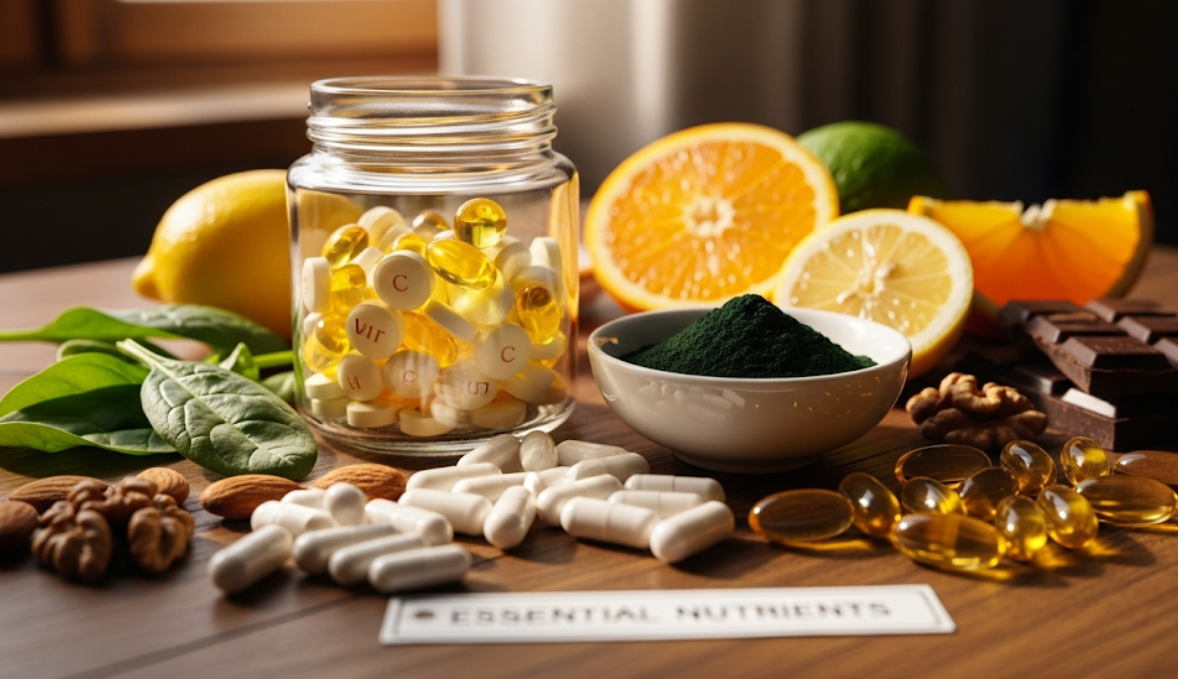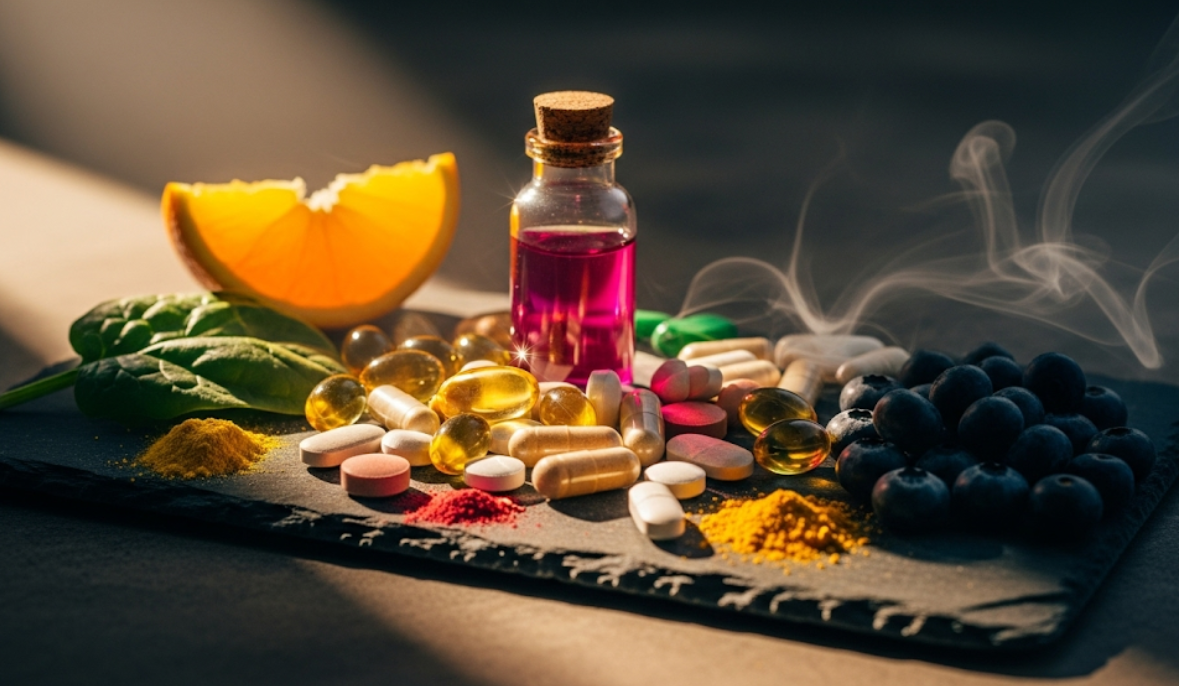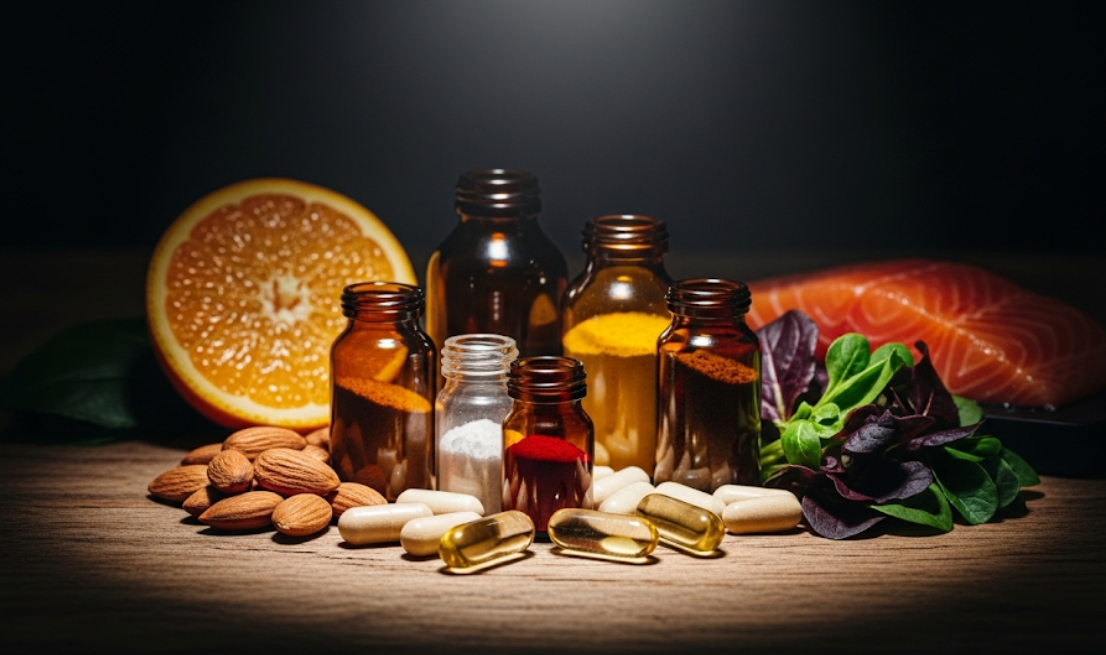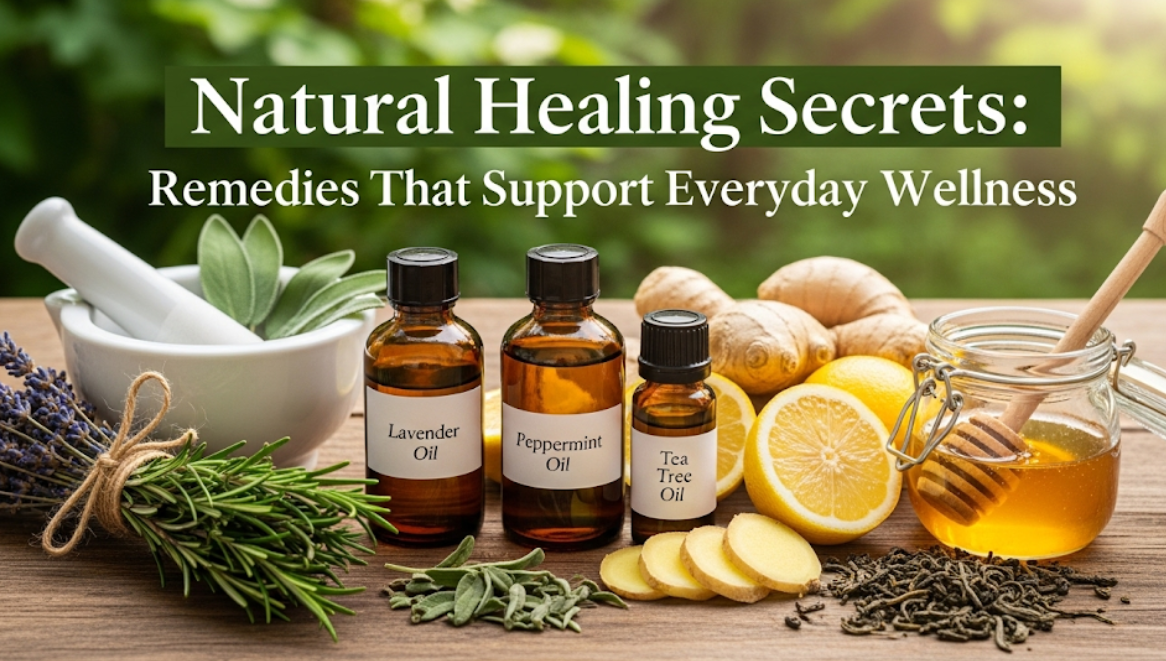Good health doesn’t come from one secret trick—it’s usually about the small things we do daily, including what we eat. Our bodies need certain vitamins and minerals to function properly. Without them, even the healthiest lifestyle can feel incomplete. The good news? You don’t have to memorize complicated nutrition charts to start. Just focus on the essentials.
Below are the 10 most important vitamins and minerals your body craves for overall health. Each one has its own role, and when they work together, the benefits are powerful.
Vitamin D – The Sunshine Vitamin 🌞
Most of us know Vitamin D as the “sunshine vitamin.” That’s because your body can produce it when your skin is exposed to sunlight. But here’s the catch: many people don’t get enough, especially if they spend most of their day indoors.
Vitamin D is crucial for strong bones since it helps the body absorb calcium. It also supports immunity and can even lift mood. A lack of it may cause fatigue, muscle weakness, or frequent illness.
Best sources: Sunlight, fortified milk, egg yolks, salmon, sardines.
Vitamin C – The Immune Booster 🍊
Whenever someone talks about fighting colds, Vitamin C usually comes up. And for good reason. It’s one of the most effective antioxidants, protecting your cells against free radicals. But that’s not all—it also helps your body heal wounds and absorb iron better.
Your body can’t store Vitamin C, so you need it daily. Thankfully, it’s easy to get from fresh fruits and vegetables.
Best sources: Oranges, strawberries, kiwi, bell peppers, broccoli.
Vitamin B12 – The Energy Maker ⚡
Feeling tired for no clear reason? You might be low on Vitamin B12. This vitamin is essential for making red blood cells and keeping your nervous system healthy. A shortage can cause fatigue, weakness, and even memory issues.
People who avoid animal products (like vegans) are especially at risk since most natural B12 comes from meat and dairy. Supplements or fortified foods can help fill the gap.
Best sources: Eggs, fish, milk, cheese, fortified cereals.
Calcium – The Bone Builder 🦴
When we think of calcium, we often think of milk—and that’s not wrong. Calcium is a mineral your body stores mostly in bones and teeth. Without enough, bones can become weak and fragile.
But calcium isn’t only about bones. It also helps muscles contract and the heart beat regularly. So, skipping it can affect more than just your skeleton.
Best sources: Milk, yogurt, cheese, spinach, almonds.
Iron – The Oxygen Carrier 💨
Iron is the mineral that helps carry oxygen in your blood. Without it, you may feel weak, pale, or dizzy because your cells aren’t getting enough oxygen.
Iron deficiency is very common, especially among women. But too much iron can also be harmful. Balance is the key.
Best sources: Red meat, lentils, spinach, pumpkin seeds, fortified cereals.
Magnesium – The Relaxation Mineral 😌
Magnesium might not get the same spotlight as other nutrients, but it plays a role in over 300 body functions! It helps relax muscles, keeps blood sugar balanced, and even supports better sleep.
Low magnesium can cause cramps, headaches, or restlessness. A steady intake makes your body calmer and more stable.
Best sources: Nuts, whole grains, dark chocolate, bananas.

Zinc – The Healing Mineral 🩹
Zinc is like your body’s repairman. Whenever you get a cut, this mineral helps speed up healing. It also strengthens your immune system and supports taste and smell.
Since the body doesn’t store zinc, regular intake is necessary. Athletes and people with high stress often need more zinc than average.
Best sources: Oysters, beans, seeds, poultry, cashews.
Potassium – The Heart Helper ❤️
Potassium is a key mineral for maintaining blood pressure and keeping the heart healthy. It also prevents muscle cramps and balances fluids in the body.
Low potassium can make you feel weak, while too much can be risky for heart health. Eating natural potassium-rich foods is usually the safest way.
Best sources: Bananas, oranges, potatoes, beans, avocados.
Vitamin A – The Vision Protector 👀
Your eyes rely heavily on Vitamin A. Without it, night vision becomes poor, and the risk of eye problems increases. But Vitamin A is also important for skin health and immunity.
Too much, however, can be harmful. So, balance matters more than quantity.
Best sources: Carrots, sweet potatoes, spinach, liver.
Vitamin E – The Skin & Cell Protector ✨
Vitamin E is an antioxidant that guards your cells against damage. It also helps skin look healthy and slows down signs of aging. On the inside, it keeps your immune system strong.
Because it’s fat-soluble, your body can store Vitamin E for future use. Just don’t go overboard with supplements, as too much may thin your blood.
Best sources: Sunflower seeds, almonds, spinach, olive oil.
Quick Reference Table
| Vitamin/Mineral | Main Benefit | Best Sources |
|---|---|---|
| Vitamin D | Strong bones, immunity | Sunlight, salmon, milk |
| Vitamin C | Immune support, healing | Oranges, kiwi, broccoli |
| Vitamin B12 | Energy, red blood cells | Eggs, fish, dairy |
| Calcium | Bones, muscles, heart | Milk, yogurt, spinach |
| Iron | Oxygen transport | Red meat, lentils, spinach |
| Magnesium | Relaxation, sleep | Nuts, dark chocolate, bananas |
| Zinc | Healing, immunity | Oysters, beans, seeds |
| Potassium | Heart, blood pressure | Bananas, potatoes, avocados |
| Vitamin A | Vision, skin | Carrots, sweet potatoes |
| Vitamin E | Skin, antioxidant | Almonds, olive oil |
Simple Tips to Get Enough Vitamins & Minerals
Eat a colorful plate—variety means more nutrients. 🌈
Include both raw and cooked vegetables (some nutrients absorb better cooked).
Don’t skip whole grains and nuts—they’re packed with hidden minerals.
If you can’t meet your needs through food, consider a good multivitamin (after talking to a doctor).
Remember: balance matters more than loading up on one nutrient.
FAQs
Q1: Do I need supplements if I eat healthy?
Not always. A balanced diet usually covers most needs. But if you have specific health issues, dietary restrictions, or low levels, supplements may help.
Q2: Which vitamin is best for energy?
Vitamin B12 is the main energy booster, but iron and magnesium also play key roles in keeping energy levels steady.
Q3: Can I get too many vitamins?
Yes. Fat-soluble vitamins (A, D, E, K) can build up in your body if taken in excess. Always stay within safe limits.
Q4: What’s the best way to remember all these?
Think of your meals in colors—greens, oranges, reds, and whites. Each color usually represents a different set of vitamins and minerals.
Q5: Can stress lower vitamin levels?
Absolutely. Stress uses up more magnesium, vitamin C, and zinc, which is why eating nutrient-rich foods during stressful times is extra important.
Final Thoughts
Vitamins and minerals aren’t just fancy words on supplement bottles—they’re the building blocks that keep your body running smoothly. From energy to immunity, from heart health to glowing skin, they’re involved in almost everything.
Instead of worrying about “getting it perfect,” focus on small, consistent habits. Eat real food, mix up your diet, enjoy some sunshine, and your body will thank you with better health. 🌿






